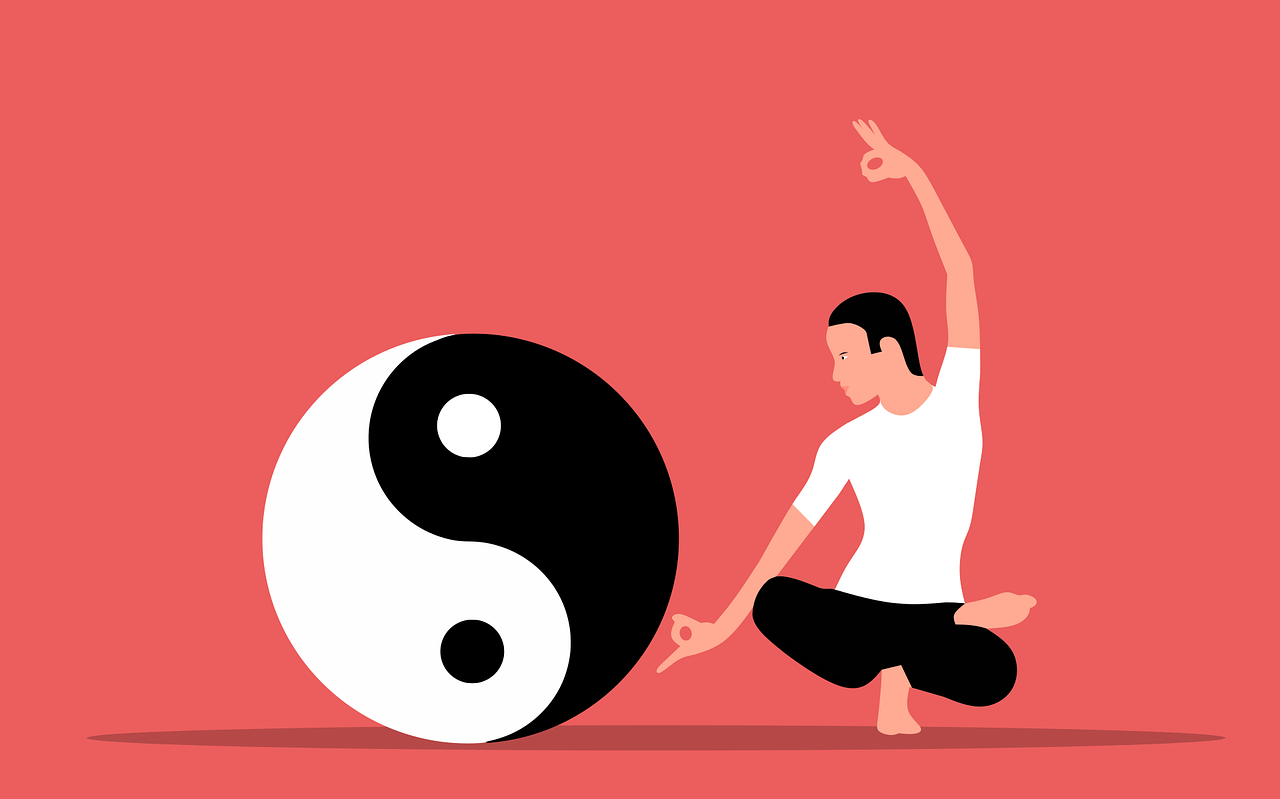In today’s fast-paced world, many of us struggle with stress, anxiety, and a constant feeling of being overwhelmed. We often find ourselves distracted, unable to focus on the present moment, and missing out on the beauty of life as it happens. If you’ve ever felt this way, you’re not alone, and you’re in the right place to find solutions. In this article, we will explore what mindfulness is, how to learn it, its impact on our lives, why it is important, and how it aids in personal development and achieving success.
Definition of Mindfulness
Mindfulness is the practice of being fully present and engaged in the current moment, without judgment. It involves paying attention to your thoughts, feelings, bodily sensations, and the surrounding environment. The goal is to observe these experiences with openness and curiosity, rather than getting caught up in them or reacting automatically. This practice allows you to live more fully in the present, rather than being caught up in the past or worrying about the future.
According to Merriam-Webster, mindfulness is “the practice of maintaining a nonjudgmental state of heightened or complete awareness of one’s thoughts, emotions, or experiences on a moment-to-moment basis”. This means being aware of what is happening inside and outside of you, moment by moment, without trying to change or judge it.

Importance of Mindfulness in Modern Life
In our modern, technology-driven society, we are constantly bombarded with information and distractions. This can lead to increased stress, reduced productivity, and a sense of disconnect from ourselves and others. Mindfulness offers a way to counteract these effects by helping us to slow down, focus on the present, and develop a deeper connection with our inner selves and the world around us. It’s not just a trend; it’s a necessary skill for maintaining mental and emotional health in the 21st century.
The Science of Mindfulness
Understanding Mindfulness
Mindfulness is rooted in ancient meditation practices, particularly those found in Buddhism. However, it has been adapted and studied extensively in the context of modern psychology and neuroscience. Understanding how mindfulness works can help you appreciate its benefits and incorporate it more effectively into your life.
Mindfulness involves two key components: attention and acceptance. Attention refers to focusing on the present moment, while acceptance involves observing your experiences without judgment. This combination helps you become more aware of your thoughts and feelings, allowing you to respond to them more effectively.
Key Brain Regions Affected by Mindfulness
Research has shown that mindfulness practice can lead to changes in brain structure and function. Key areas affected include:
- Prefrontal Cortex: Responsible for decision-making, attention, and self-control. Mindfulness can increase activity and gray matter density in this region, enhancing executive functions.
- Amygdala: Associated with stress and anxiety responses. Mindfulness practice can reduce activity and size in this area, leading to better emotional regulation.
- Hippocampus: Crucial for memory and learning. Mindfulness can increase gray matter in this region, improving cognitive functions.
Neuroplasticity and Mindfulness
Neuroplasticity is the brain’s ability to reorganize itself by forming new neural connections. Mindfulness practices can enhance neuroplasticity, helping the brain adapt and change in response to new experiences. This means that regular mindfulness practice can lead to long-term improvements in mental and emotional health.
Benefits of Mindfulness
Mindfulness offers a wide range of benefits that can enhance various aspects of your life, from personal growth to physical health.
Personal Growth
Increased Self-Esteem
Mindfulness helps you develop a more positive self-image by fostering self-acceptance and reducing self-criticism. By being present and non-judgmental, you learn to appreciate yourself for who you are, which boosts your self-esteem.
Gaining Control Over Your Life
Mindfulness helps you respond to situations with clarity rather than reacting impulsively, giving you more control over your actions and decisions. For example, if you face a stressful situation at work, mindfulness enables you to pause, assess your emotions, and choose a calm and constructive response.
Increasing Concentration and Productivity
Mindfulness improves focus and attention, making you more productive and efficient in your tasks. By training your mind to stay present, you can reduce distractions and enhance your ability to concentrate on what matters most.
Self-Awareness
Enhancing Self-Understanding
Mindfulness encourages introspection, helping you understand your motivations, desires, and patterns of behavior. By regularly reflecting on your thoughts and emotions, you can gain deeper insights into what drives you and what holds you back.
Rediscovering Yourself
Mindfulness allows you to reconnect with your true self, helping you understand your values, desires, and goals. This self-discovery process can lead to a more fulfilling and authentic life.
Recognizing Personal Patterns and Behaviors
By observing your thoughts and actions without judgment, you can identify habits that may be holding you back and make conscious efforts to change them. For instance, if you notice a tendency to procrastinate, mindfulness can help you understand the underlying causes and develop strategies to overcome them.
Emotional Intelligence
Improving Emotional Regulation
Mindfulness helps you regulate your emotions more effectively, reducing anxiety and depression. By observing your emotions without judgment, you can respond to them in healthier ways.
Reducing Anxiety and Depression
Regular mindfulness practice can significantly reduce symptoms of anxiety and depression by promoting a more balanced and positive mental state. Studies have shown that mindfulness-based interventions can be as effective as traditional therapies in alleviating these conditions.
Developing Empathy and Compassion
Mindfulness fosters empathy and compassion, helping you build stronger connections with others. By fostering a non-judgmental awareness of your own experiences, mindfulness can help you become more empathetic and compassionate towards others. This can improve your relationships and create a more supportive and understanding environment at home and work.
Relationships
Building Stronger Connections
Mindfulness improves your ability to be present and attentive in your relationships, leading to deeper and more meaningful connections. By being fully engaged in your interactions, you can build trust and intimacy with others.
Enhancing Communication Skills
Being mindful in conversations allows you to listen more deeply and respond more thoughtfully, improving communication with others. For example, mindfulness can help you avoid interrupting, stay focused on the speaker, and express yourself more clearly and effectively.

Stress Management
Techniques for Reducing Stress
Mindfulness offers various techniques, such as deep breathing and body scans, that can help you manage stress more effectively. These practices can reduce the physical and emotional impact of stress and help you stay calm in challenging situations.
Long-Term Benefits for Mental Health
Regular mindfulness practice can lead to sustained improvements in mental health, reducing the risk of burnout and chronic stress. By incorporating mindfulness into your daily routine, you can build resilience and enhance your overall well-being.
Mental Health
Impact on Stress and Anxiety
Mindfulness reduces the physiological and psychological impacts of stress and anxiety, promoting a sense of calm and well-being. For example, mindfulness meditation can lower cortisol levels, the hormone associated with stress, leading to a more relaxed state of mind.
Connecting with a Sense of Purpose
Mindfulness can help you connect with your deeper sense of purpose and meaning in life, enhancing overall life satisfaction. By regularly reflecting on your goals and values, you can align your actions with what truly matters to you and create a more fulfilling life.

Physical Health
Impact on Physical Well-being
Mindfulness can improve physical health by reducing stress, lowering blood pressure, and boosting your immune system, making you more resistant to illnesses. By promoting relaxation and reducing the impact of stress on your body, mindfulness can help you maintain better physical health.
Alleviation of Chronic Pain
Mindfulness has been shown to help manage chronic pain by changing the way the brain processes pain signals. By focusing on the present moment and accepting your pain without judgment, you can reduce its intensity and impact on your life.
Better Sleep
By reducing stress and promoting relaxation, mindfulness can improve sleep quality. Practices such as mindful breathing and body scans can help you unwind before bed and enjoy more restful sleep.
Creativity
Enhancing Creative Thinking
Mindfulness fosters a state of open awareness, which can enhance creative thinking and problem-solving abilities. By staying present and curious, you can tap into your creativity and come up with innovative ideas.
Finding Inspiration and Innovation
By staying present and open-minded, mindfulness can help you find inspiration in everyday life and foster innovative thinking. For example, mindfulness can help you notice details and connections that you might otherwise overlook, sparking new ideas and solutions.

Mindfulness Techniques
Meditation
Meditation is one of the most common mindfulness practices. It involves sitting quietly and focusing on your breath, a mantra, or a specific object. The goal is to observe your thoughts and feelings without judgment and gently bring your attention back to your focus whenever your mind wanders. There are various forms of meditation, including:
- Breath Awareness: Focusing on your breath to anchor your attention in the present moment.
- Body Scan: Bringing awareness to different parts of your body to release tension and promote relaxation.
- Loving-Kindness Meditation: Cultivating feelings of compassion and love towards yourself and others.
Journaling
Journaling is a powerful tool for self-reflection and mindfulness. By writing down your thoughts and feelings, you can gain insights into your inner world and track your progress over time. Journaling can help you identify patterns, set goals, and express your emotions in a healthy way.
Active Listening
Active listening involves fully concentrating on what someone is saying, without interrupting or judging. This practice helps you stay present in conversations and build stronger connections with others. It also enhances your empathy and understanding.
Continuous Learning
Engaging in continuous learning keeps your mind agile and promotes a growth mindset. By staying curious and open to new experiences, you can cultivate mindfulness and enhance your personal development.

Practical Applications of Mindfulness
Mindfulness Meditation Tips:
Incorporating mindfulness meditation into your daily routine can be simple and flexible. Here are some techniques to try:
- Set Aside Time: Dedicate a specific time each day for mindfulness meditation, even if it’s just a few minutes.
- Create a Comfortable Space: Find a quiet and comfortable place where you won’t be disturbed.
- Focus on Your Breath: Use your breath as an anchor to bring your attention back whenever your mind wanders.
- Be Kind to Yourself: Don’t judge yourself if your mind wanders. Gently bring your focus back to the present moment.
Incorporating Mindfulness into Daily Life
You can integrate mindfulness into your daily routine by:
- Mindful Eating: Pay attention to the taste, texture, and smell of your food, and eat slowly without distractions.
- Mindful Walking: Focus on the sensations of walking, such as the feeling of your feet touching the ground and the movement of your body.
- Mindful Breathing: Take a few moments throughout the day to focus on your breath and bring your attention back to the present moment.

Challenges and Misconceptions
Common Obstacles
While mindfulness offers many benefits, there can be challenges in maintaining a regular practice. Common obstacles include:
- Finding Time: It can be challenging to find time for mindfulness practice in a busy schedule. Start with just a few minutes a day and gradually increase the duration.
- Restlessness: Sitting still and focusing can be difficult, especially if you’re new to mindfulness. Practice patience and perseverance.
- Expectations: Avoid having high expectations about immediate results. Mindfulness is a gradual process that requires consistent practice.
- Distractions: Staying focused in a world full of noise and distractions can be difficult. Try to focus on your breathing.
Myths About Mindfulness
There are several myths about mindfulness that can deter people from practicing it:
- Mindfulness is Only for Relaxation: While mindfulness can promote relaxation, it is also about developing awareness and acceptance of all experiences, including difficult ones.
- Mindfulness is a Religious Practice: Although mindfulness has roots in Buddhist meditation, it is a secular practice that can be embraced by people of all backgrounds.
- Mindfulness Requires a Lot of Time: You don’t need to spend hours meditating to benefit from mindfulness. Even a few minutes of practice each day can make a difference.

Conclusion
Summary of Benefits
Mindfulness is a powerful practice that can transform your life by helping you stay present, reduce stress, and enhance your overall well-being. By understanding what mindfulness is, learning how to practice it, and incorporating it into your daily life, you can experience its many benefits. Whether you are looking to improve your mental and physical health, enhance your relationships, or achieve personal growth, mindfulness can be a valuable tool on your journey. So, take the first step today and start your mindfulness practice. Your future self will thank you.
Encouragement for Continuous Practice
Remember, mindfulness is a lifelong journey. It requires patience, commitment, and practice. But the rewards are well worth the effort. By making mindfulness a regular part of your life, you can cultivate a greater sense of peace, clarity, and fulfillment. So, keep practicing, stay curious, and embrace the present moment. Your journey to personal growth and success starts now.

Leave a Reply